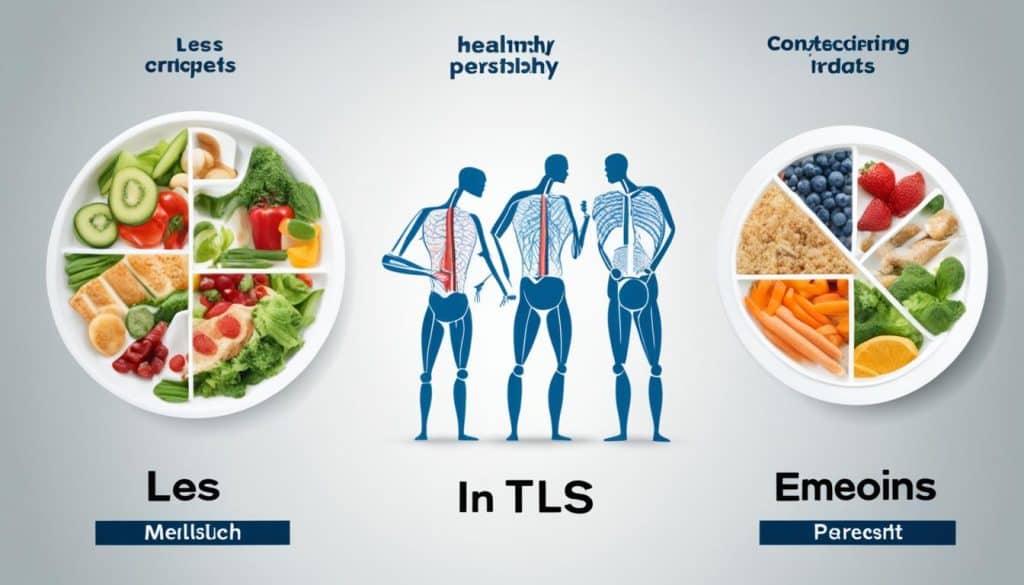Embracing the concept of personal health responsibility is pivotal for safeguarding and enhancing our own health. It is this self-accountability that not only empowers us to make informed choices for our well-being but also relieves pressures on our healthcare infrastructure. Adopting a proactive stance on our health can lead to a higher quality of life, prevention of disease, and contributes substantially to the welfare of the community at large.
Key Takeaways:
- Recognizing the importance of personal health responsibility is a proactive step towards improved well-being.
- Making informed health choices reduces risk factors for chronic diseases.
- Self-awareness in health maintenance lessens the strain on healthcare resources.
- Individual health management strategies directly contribute to community health standards.
- Personal commitment to health can lead to a more satisfying and productive life.
- Encouraging personal health responsibility is vital for sustainable healthcare systems.
The Socioeconomic Impact of Lifestyle Choices on Healthcare Systems
As the fabric of modern society becomes increasingly interwoven with healthcare provisions, the influence of lifestyle choices on the economics of healthcare systems cannot be overstressed. The daily decisions individuals make about diet, exercise, and other habits significantly shape the collective burden of illness and the associated costs borne by healthcare frameworks. In this context, understanding the financial implications of these choices is essential for policymakers and individuals alike.
Examining the Burden of Lifestyle-Related Illnesses
Lifestyle-related illnesses, such as type 2 diabetes and heart disease, present a heavy burden of illness on societies across the globe. These conditions, often preventable through healthier lifestyle choices, exert tremendous pressure on healthcare systems, demanding substantial resources for chronic disease management. The healthcare implications ripple outwards, influencing insurance premiums, taxing public health initiatives, and necessitating increased healthcare staffing.
The High Cost of Neglecting Personal Health
Ignoring the imperatives of personal health can lead to escalated costs of neglecting health, both for individuals and healthcare systems. This negligence often translates to avoidable hospital admissions, expensive medical treatments, and lost productivity, not to mention the profound personal toll on the quality of life for those afflicted and their families.
Strategies Beyond Access: Prevention as a Cost-Effective Solution
In our quest to mitigate the impact of non-communicable diseases on the economy, prevention emerges as a powerful, cost-effective solution. By investing in preventive measures, such as education, vaccination, and early detection programs, healthcare systems can reduce the overall cost of neglecting health and alleviate the burden of illness. Prioritizing a preventive approach not only saves lives but also provides a high return on investment for communities and governments.
| Preventive Measure | Healthcare Savings | Improved Outcomes |
|---|---|---|
| Education Programs | Reduction in chronic disease prevalence | Increased health literacy and empowerment |
| Vaccination Campaigns | Decrease in infectious disease treatment costs | Lower incidence of vaccine-preventable illnesses |
| Early Detection Programs | Reduced emergency care expenses | Earlier treatment interventions, better prognosis |
Importance of Personal Health Responsibility
The importance of personal health responsibility cannot be overstated in its impact on both individuals and the broader society. Embracing this concept leads not only to enhanced well-being but also to considerable savings in healthcare costs, spotlighting the profound benefits that come from a commitment to personal health. By delving into the various ways that individuals can take charge of their health, the objective of improved health outcomes becomes an attainable goal for all.
- Encouraging regular physical activity to combat sedentary lifestyles
- Promoting a balanced diet rich in nutrients, crucial for preventing nutritional deficiencies and chronic diseases
- Understanding the critical role of mental health in overall well-being
- Highlighting the prevention of diseases through vaccinations and regular health screenings
Beyond individual behavior changes, there’s a collective impact when people prioritize health in their daily lives. This synergy significantly alleviates the strain on healthcare services and resources. Thus, highlighting the importance of personal health responsibility is paramount in empowering people to lead healthier, happier lives, ultimately enabling a more sustainable healthcare system for future generations.

In conclusion, the importance of personal health responsibility is a pivotal factor that shapes not only individual health trajectories but also the efficacy of national health care systems. As such, it demands our focused attention and concerted action. Through informed and proactive choices, the foundation of a healthier society can be built—one individual at a time.
Fostering a Collaborative Approach to Health: Combining Individual and Social Efforts
In a society that increasingly recognizes the interconnectedness of its members, a collaborative approach to health is proving to be indispensable. This tandem of individual and social efforts is the bedrock upon which sustainable health outcomes can be constructed. When individuals take proactive steps towards maintaining their health—be it through regular exercise, balanced nutrition, or routine medical check-ups—the collective health of the community benefits as a result. However, personal initiatives can only go so far without the support of a societal framework that encourages and enables these behaviors.
Understanding this synergy, government bodies are now more than ever involved in creating policies geared towards enhancing public health. Community programs that aim to educate and promote active lifestyles are an example of such efforts. These initiatives don’t just make adopting a healthier lifestyle more accessible, but they also weave the importance of personal health responsibility into the social fabric. The aim is to cultivate an environment where individual choices are respected and encouraged, yet fostered by communal support systems.
Moreover, the collaborative strategies lean heavily on preventive measures. From vaccination drives to public health awareness campaigns, there’s an increasing emphasis on preemptive action to stave off potential health crises before they escalate. By employing a dual-focus strategy that values both preventative care and responsive medical intervention, we can significantly reduce the long-term stress on our healthcare systems. This collaborative approach not only underpins a healthier population but also reflects a wise economic strategy, potentially channeling resources that might otherwise be allocated to healthcare into other vital areas of social development.

